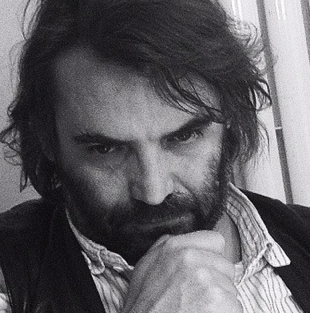
- This event has passed.
BVI Seminar: Psychophysical probes into spatial vision: you ain’t seen nothin’ yet.
Friday 10, March, 2017 @ 16:00 - 17:00

Tim Meese, School of Life and Health Sciences, Aston University.
 Everyone knows what cosmologists do: they gaze out into the sky to see the secrets of what’s out there, matching observations with theory to understand how the universe came about. Visual psychophysicists are motivated by a similar sense of wonder; but the universe they want to understand lives inside the biological computer of the human brain. By using carefully designed visual stimuli in controlled laboratory environments, it turns out that this non-invasive research method can provide an incisive view of the visual mechanisms that lie within us, whether we are conscious of them or not! I shall show how psychophysics has been used to see into the very early stages of the visual processing stream, where the ‘atoms’ of vision are very different from the rich visual experience that they deliver when we open our eyes, and where competing theories have been pitched against one another, helping us to understand how we see.
Everyone knows what cosmologists do: they gaze out into the sky to see the secrets of what’s out there, matching observations with theory to understand how the universe came about. Visual psychophysicists are motivated by a similar sense of wonder; but the universe they want to understand lives inside the biological computer of the human brain. By using carefully designed visual stimuli in controlled laboratory environments, it turns out that this non-invasive research method can provide an incisive view of the visual mechanisms that lie within us, whether we are conscious of them or not! I shall show how psychophysics has been used to see into the very early stages of the visual processing stream, where the ‘atoms’ of vision are very different from the rich visual experience that they deliver when we open our eyes, and where competing theories have been pitched against one another, helping us to understand how we see.
Bio: Having started out as a British Telecommunications Engineer, Tim switched directions in the late 80s when he pursued a degree in Computer Science and Psychology at the University of Newcastle-upon-Tyne. He then did a PhD in the Psychology Department at the University of Bristol, held a postdoc position at The University of Birmingham, then moved to The University of Aston in 1996 where he is now Professor of Vision Science. His duties there include teaching Optometry students that we see with our brains—not our eyes. He has held funding from EPSRC, BBSRC, Leverhulm Trust and the Welcome Trust, is the Vice-Chairman of the Applied Vision Association, a chief editor of the sister journals Perception and i-Perception, the director of the Centre for Vision and Hearing Research and the director of the Aston Laboratory for Immersive Virtual Environments (ALIVE). Amongst other things, this new venture aims to use virtual reality to help bridge the gap between psychophysics and social psychology: visual perception provides the stage, and social perception the players upon it.
